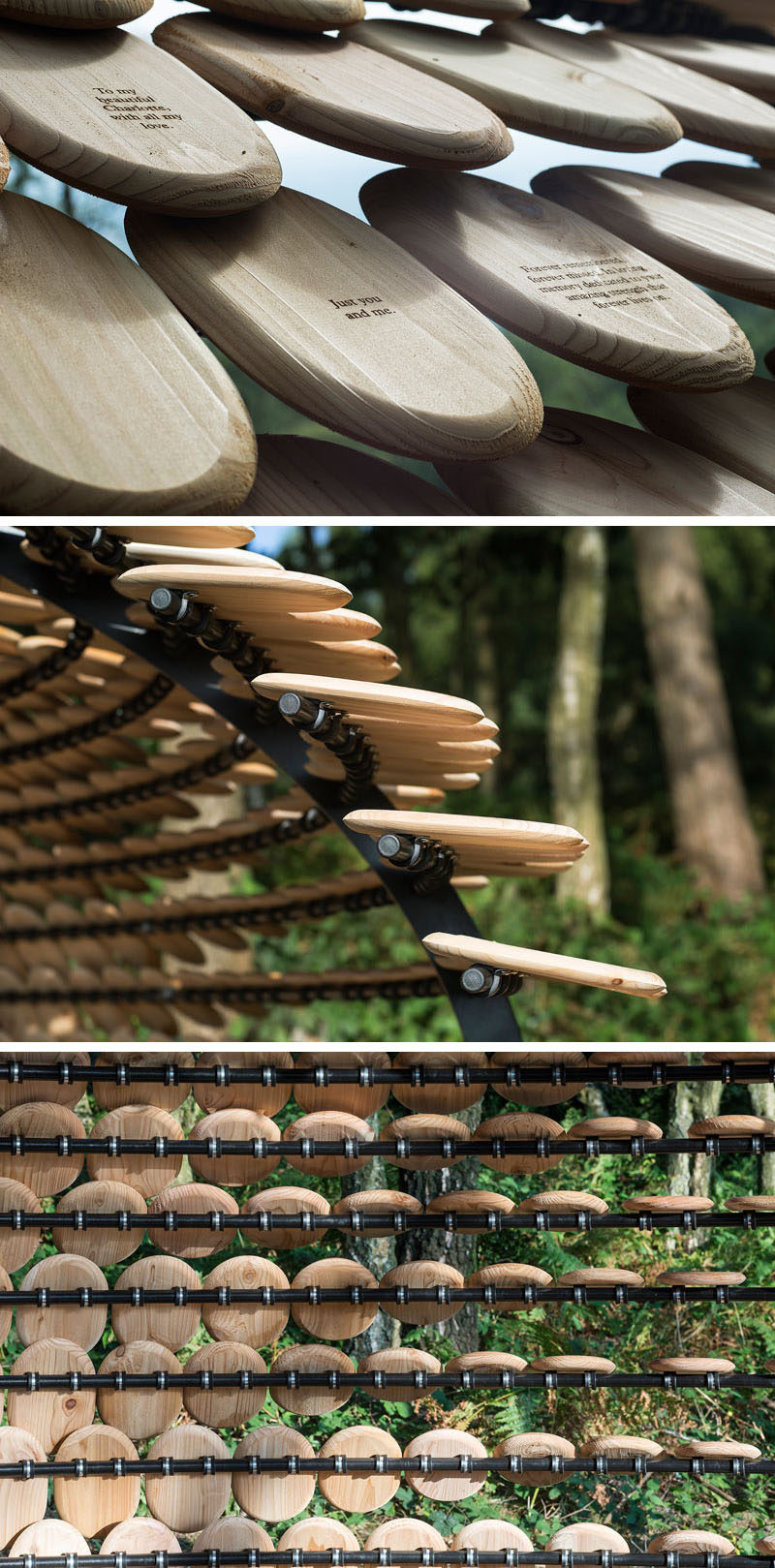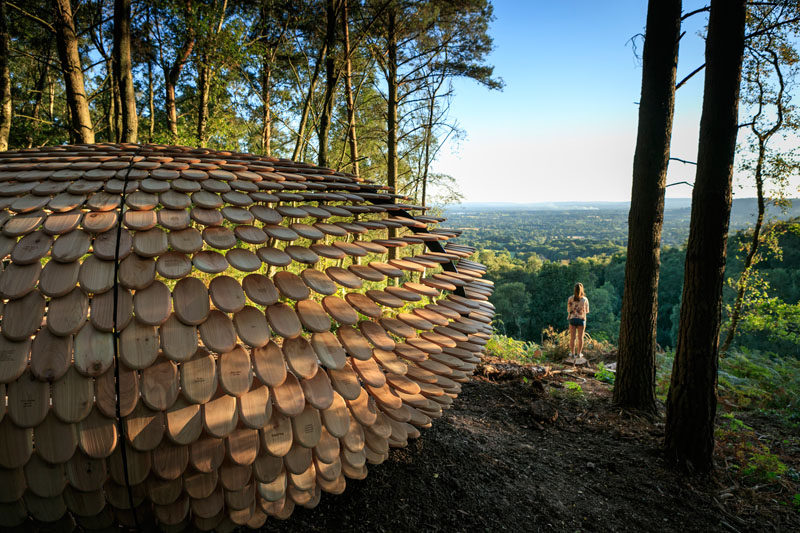The London-based design studio of Giles Miller, focuses on innovative surfaces, material and sculptural works, and their latest design is named ‘Perspectives’.
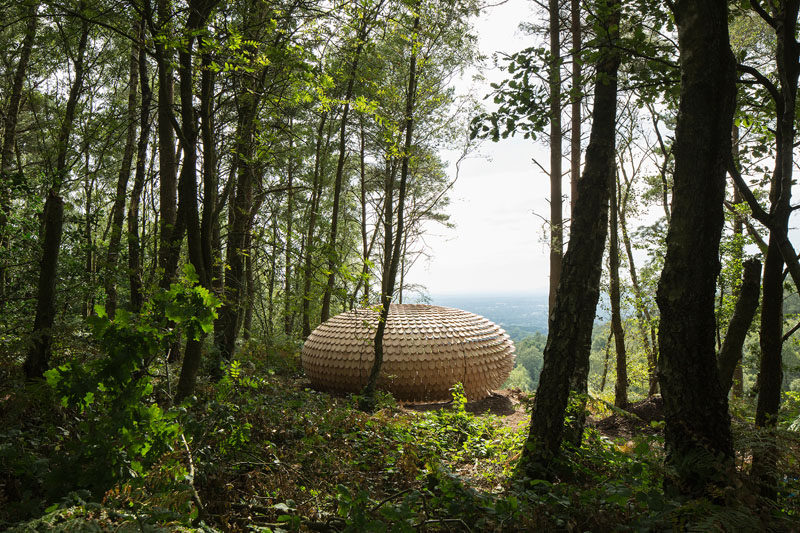
‘Perspectives‘ is their first permanent sculptural architecture installation that’s an organic pavilion covered with Cedar shingles.
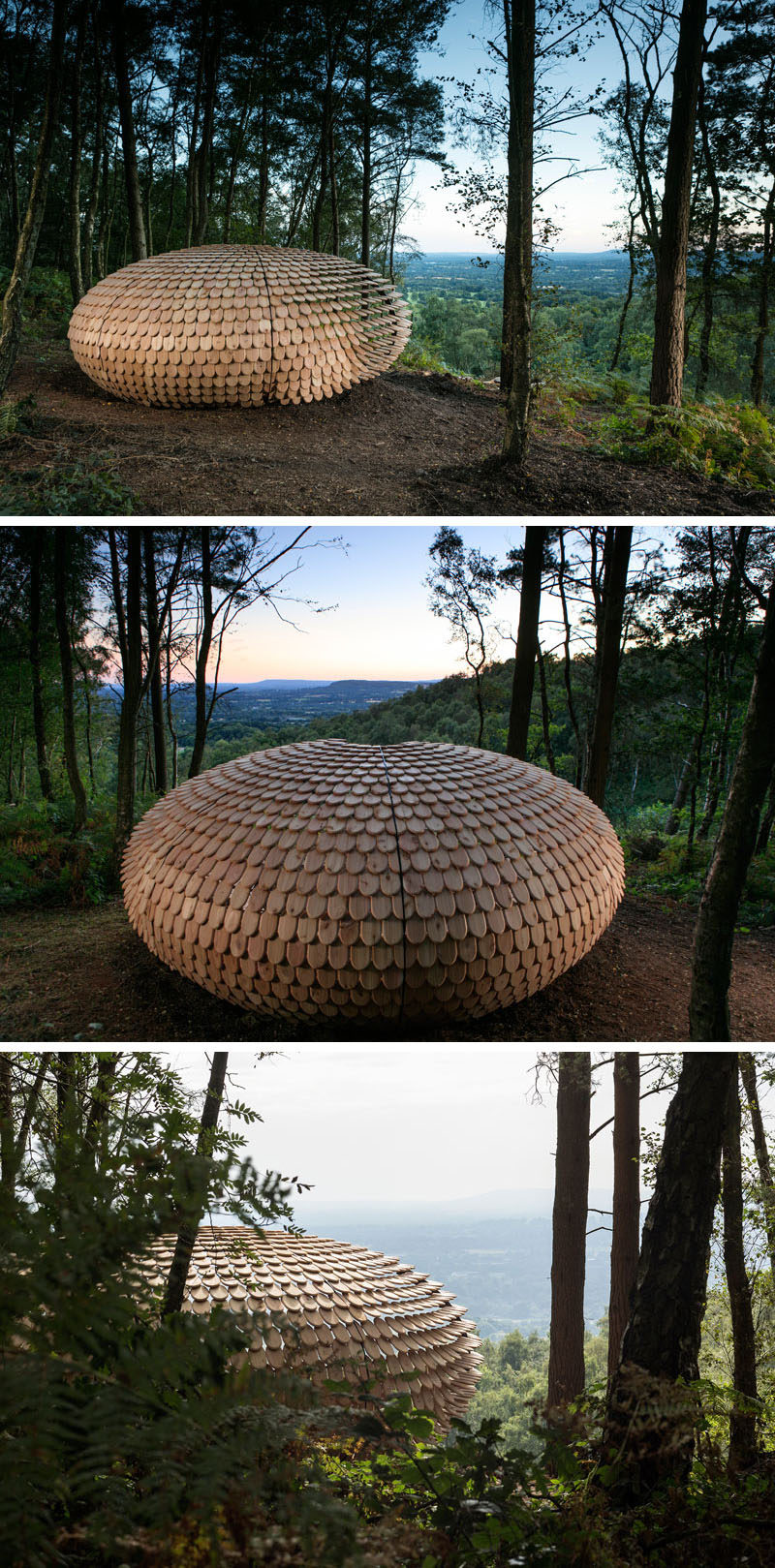
Commission by Surrey Hills Arts and the Mittal Foundation, the installation is located along a scenic route on the Hills of Surrey, south of London.
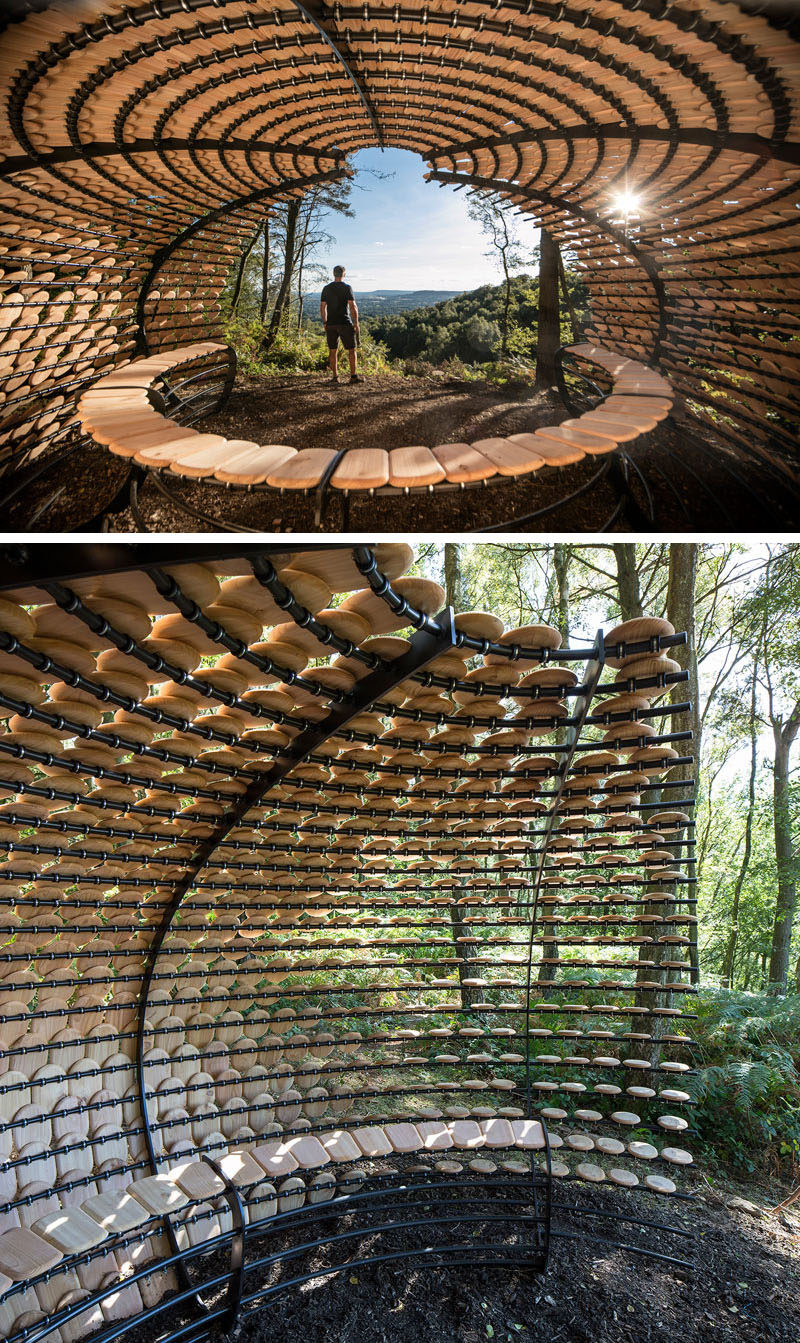
The installation was created as a place to enjoy quiet and restful contemplation, with the shingles providing shelter from the elements, and inside there are benches to enjoy the view.
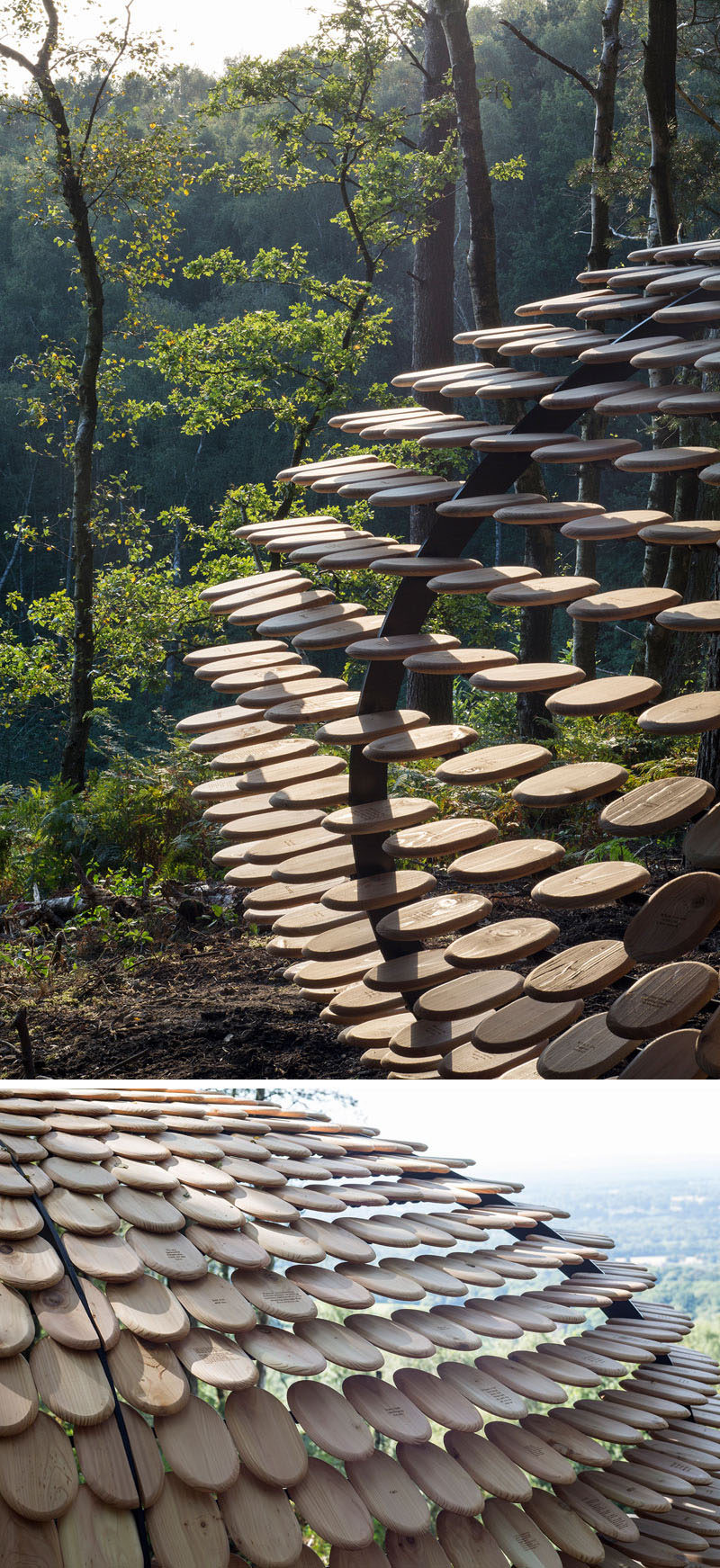
Inspired by the words and messages people etch into public places and trees, the cedar shingles display poetry, messages, initials and messages of love and memory from local schools,residents and other contributors to the project.
